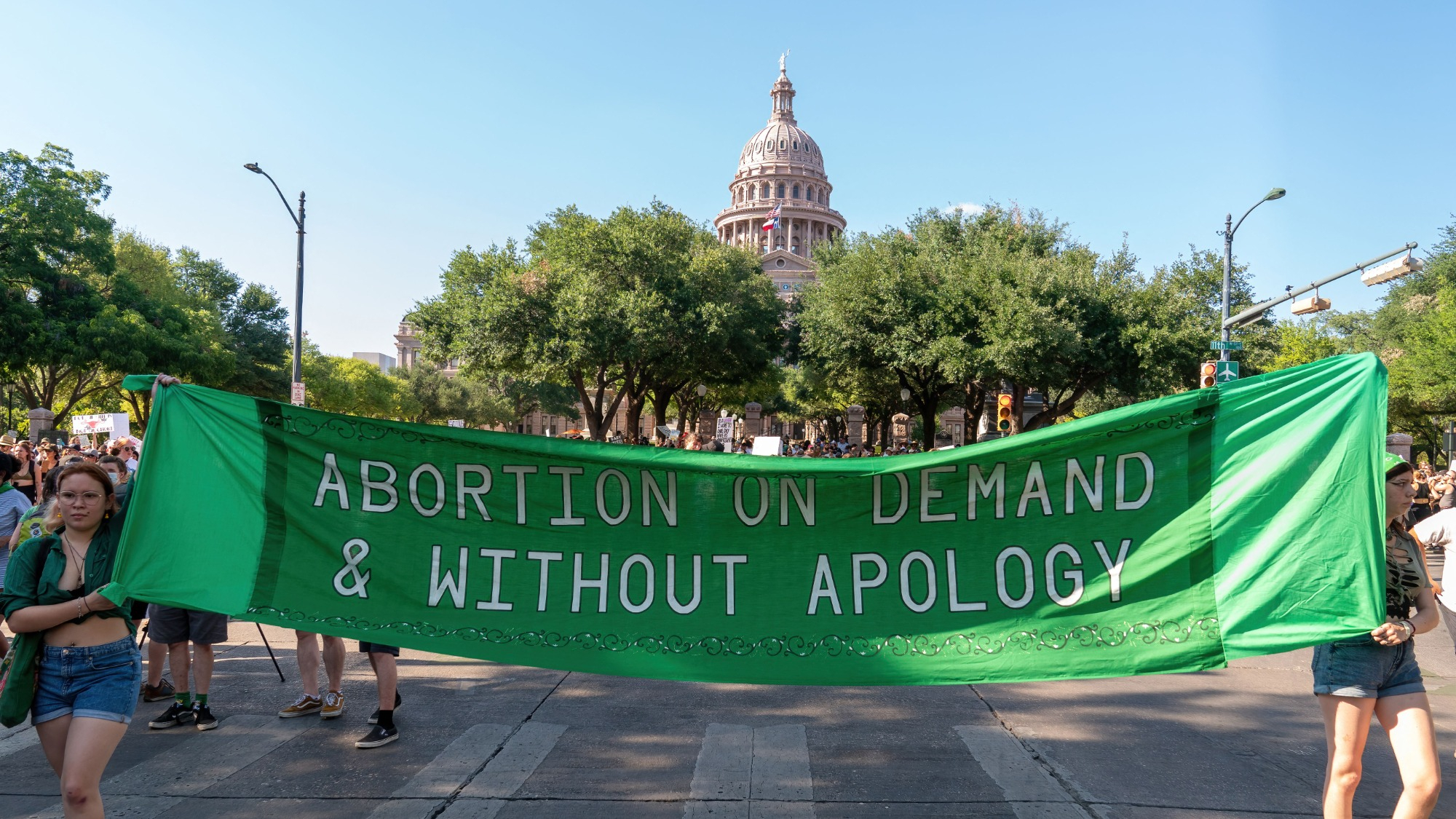

One year after a strict abortion ban went into effect in Texas, close to 10,000 additional live births occurred in the state. New research detailing the jarring statistic was published on June 29 in the Journal of the American Medical Association (JAMA).
[Related: Banning the abortion pill would harm veterans, cancer patients, and many others.]
Republican Governor Greg Abbot signed Texas State Bill 8 (SB8) in 2021, which bans abortion after six weeks gestation, often before many women even know they are pregnant. It also allows private citizens to sue anyone who performs an abortion or helps a pregnant person terminate a pregnancy. It took effect about 10 months before the June 2022 Supreme Court decision in Dobbs v. Jackson Women’s Health Organization, which effectively overturned Roe v. Wade. The decision revoked the federal right to abortion, demonstrated anti-science views and falsities, and broke the standards for healthcare in the United States.
“There has been a lot of speculation about how restrictive abortion policies will affect the number of babies being born. This research adds valuable information to that discussion,” study co-author and Johns Hopkins assistant professor Alison Gemmill said in a statement. “Although our study doesn’t detail why these extra births occurred, our findings strongly suggest that a considerable number of pregnant individuals in Texas were unable to overcome barriers to abortion access.”
In the study, a team from Johns Hopkins Bloomberg School of Public Health examined available birth records from all 50 states and Washington DC between 2016 and 2022. The data in the years leading up to SB8 established a version of what the birth trends in the Lonestar State would have likely looked like without the restrive law, which was then compared with the number of births reported that were actually reported.
From April to December 2022, which were the first months that would have reflected the effects of the law, there were roughly 297,000 total births. This is about 3 percent more than the 287,000 births that would have been expected without SB8, making for a difference of 9,799 births.
The authors caution that these results cannot be generalized to other states like North Dakota, Arkansas, and West Virginia that also have restrictive abortion laws since the analysis was only restricted to Texas. The team on this study also plan to explore how SB8 may have disproportionately impacted certain demographic groups when detailed birth data becomes available in the coming months.
[Related: Minnesota just became the first post-Roe state to make abortion a right.]
“The study’s findings highlight how abortion bans have real implications for birthing people, thousands of whom may have had no choice but to continue an unwanted or unsafe pregnancy to term,” study co-author and Johns Hopikins associate professor Suzanne Bell said in a statement. “Notably, the majority of people who seek abortions live below or close to the poverty line. So many of these birthing people and their families were likely struggling financially even before the recent birth.”
A 2022 study also published in JAMA found that abortions in or around Texas dropped by 38 percent in the months after SB8 went into effect. These laws are also impeding access to drugs that treat ulcers, arthritis, and cancer.
Additionally, a trigger law went into effect in Texas in August 2022 following the Dobbs decision. It banned abortion at nearly all stages and made it a felony punishable by up to life in prison. The only exception to this law is to save the life of a pregnant person.
In tandem with these restrictive laws, poor policies around child care and paid family leave are creating more challenges for many throughout the United States, which hasn’t changed following the overturning of Roe v. Wade.
“With the end of stimulus payments and some pandemic-era social network programs, birth rates may decline because people don’t feel like they have the resources to properly care for kids,” Beth Jarosz, a demographer and program director with the nonprofit Population Reference Bureau who was not involved with the study told CNN. “Will birth rates fall faster because of that or rise faster because of more restrictive abortion access? The implications are anyone’s guess.”
